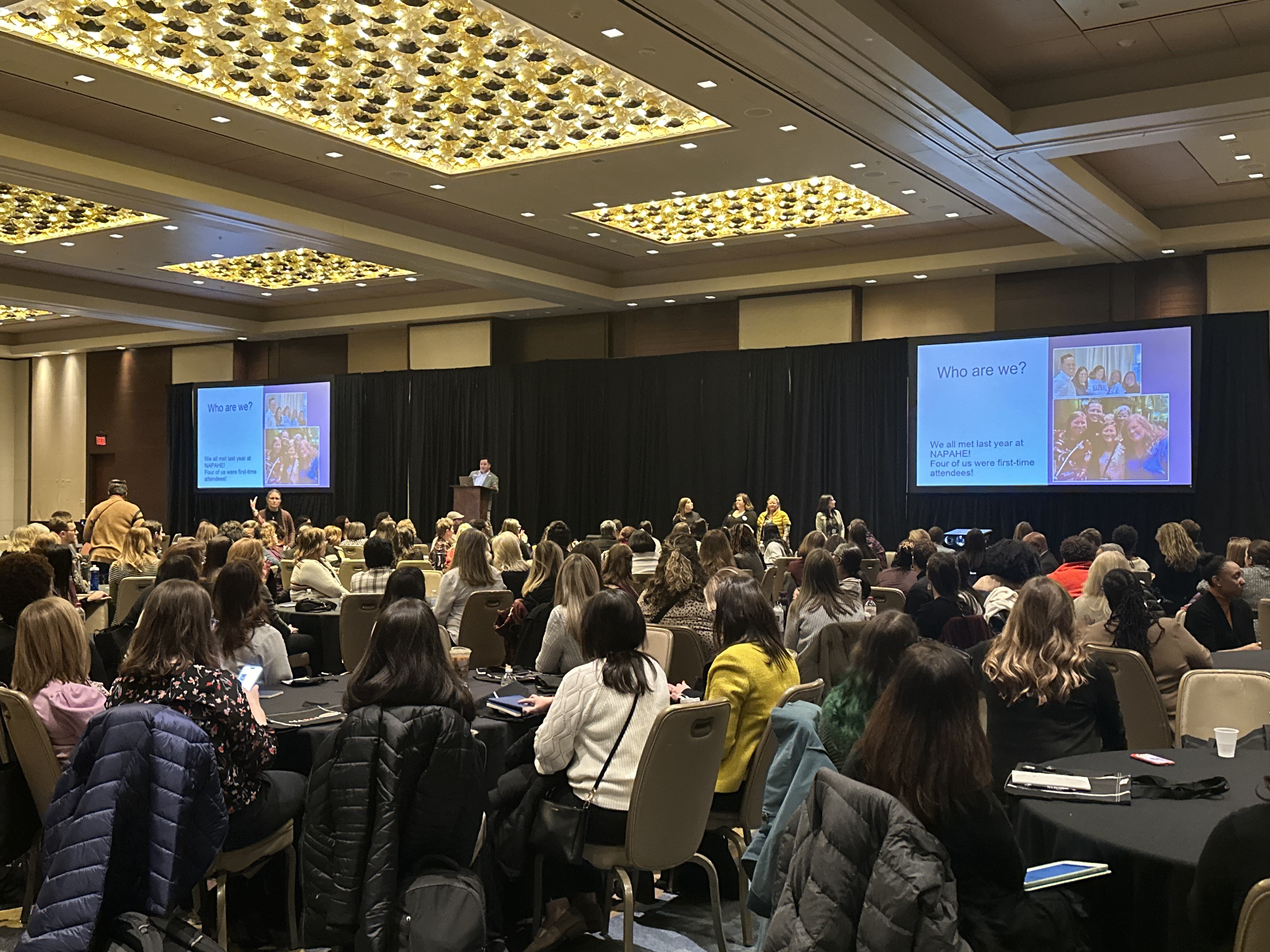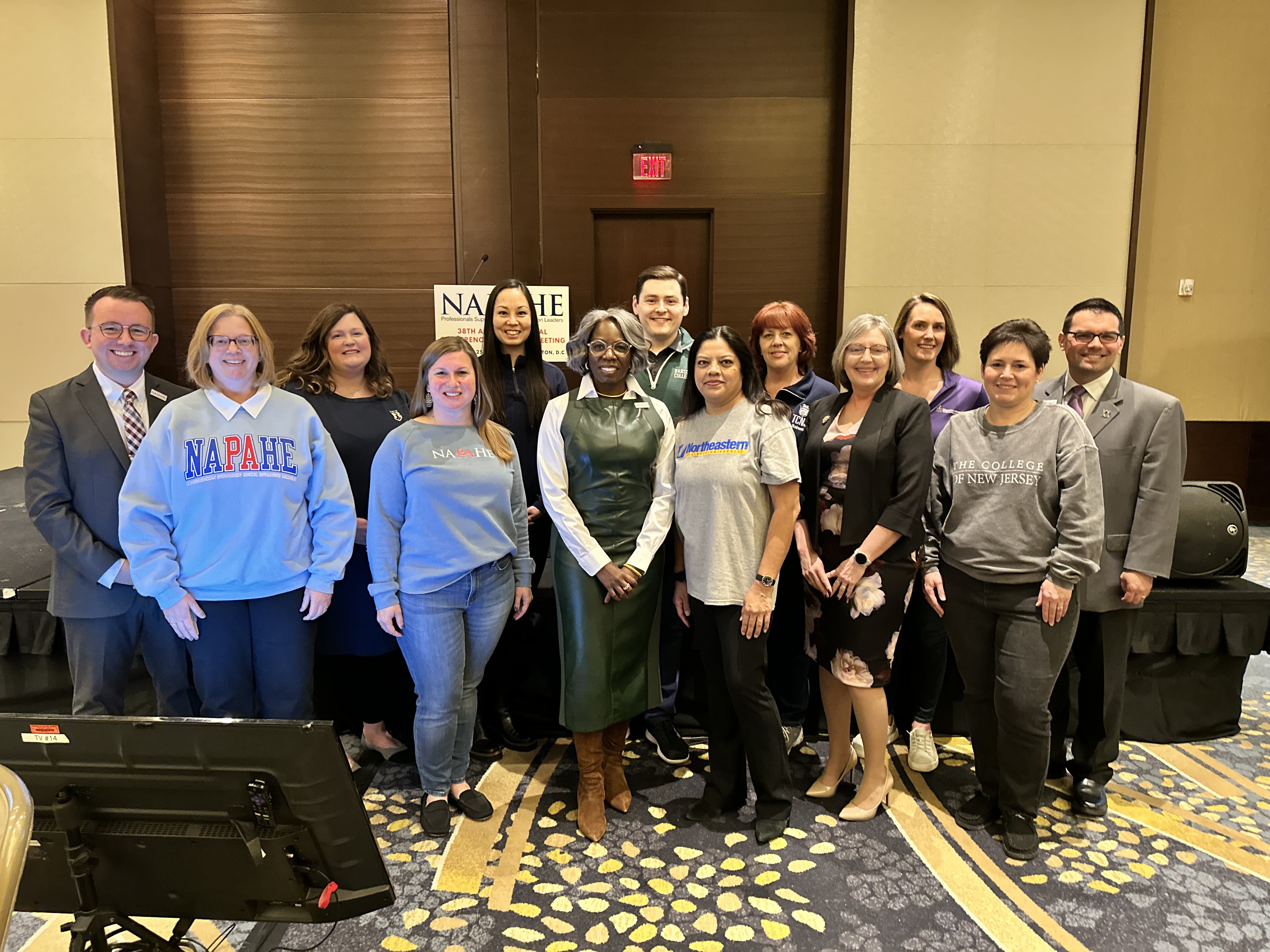San Antonio Selected as Host City for 2026 Annual National Conference
NAPAHE Names San Antonio as Host City for 2026 Annual National Conference

Published Thursday, February 27, 2025
Following a competitive request for proposals process, the Board of Directors for the National Association of Presidential Assistants in Higher Education (NAPAHE) is pleased to announce that the association’s 39th Annual National Conference & Business Meeting will be hosted March 11-13, 2026, at the Marriott Rivercenter on the River Walk located in downtown San Antonio, Texas. The 2026 event will be NAPAHE’s inaugural independent conference.
When considering this decision, the association’s board emphasized a number of key factors, including feedback from NAPAHE’s members, the association’s recent and continued growth, and the geographic location of the annual event. Other site selection factors include convention center facilities, hotel packages, and nearby venue options for evening events and networking opportunities. The venue’s proximity to NAPAHE’s home office in Victoria, Texas, was also an important factor in planning the first independently-hosted conference.
“As an association by and for our members, we promised that we would listen to our members,” said NAPAHE Executive Director Stuart Schmidt. In October 2024, NAPAHE’s Board of Directors worked with an external consultant, Essentiam, to conduct a member survey. The survey addressed various aspects of the association, including the annual conference. Around 61% of survey respondents indicated that the current conference location was a factor that would change their likelihood of attending. A cumulative 57% of respondents indicated that timing was a factor. Top requests from members related to the conference include rotating the conference beyond Washington, D.C., moving away from January due to uncertain weather, hosting the event in warmer climates, and identifying a more central location. “The feedback from our members was clear. After many years of traveling from coast to coast, we are excited to bring the conference to a more centralized location. San Antonio was a natural choice.”
For many years, NAPAHE has benefited from the support of conference partners to deliver an annual in-person event that is cost-effective for the association and its members. In 2024 and 2025, NAPAHE partnered with the American Association of Colleges & Universities (AAC&U) to concurrently deliver the annual conferences and business meetings. Prior to 2024, NAPAHE had partnered with the American Council on Education (ACE) for the annual event.
“We greatly appreciate our partnerships with AAC&U and ACE and the support we have received over the years,” shared NAPAHE's 2025-2026 Board Chair, Rolanda Burney. “Collaborating with these national organizations has been invaluable in empowering our association to bring together our members and their principals at a single event focused on advancing careers, promoting new ideas, and proactively shaping the future of the profession.”
“Through this collaboration, we have gained greater visibility and recognition, allowing us to grow to a point where operating independently is now a viable option. This success is a direct result of the steadfast relationship we've enjoyed. We wish our colleagues at AAC&U all the best and look forward to discovering new ways to work together in the future."
In February 2025, NAPAHE celebrated a new membership milestone: the association now has over 1,000 members for the first time in the association’s history. By welcoming more members into the association, NAPAHE’s leaders were challenged with proactively ensuring that every member and prospective member has the opportunity to participate in the annual event. “For many of our colleagues, attending the conference is a major professional goal, and we love the synergy of seeing our members in person,” noted Rowena Clukey, NAPAHE board director and chairperson of the 2026 event. “For the past two years, we’ve sold out at the conference. By going to the San Antonio Marriott Rivercenter on the Riverwalk—and doing so independently—we can accommodate a larger number of attendees at the conference and deliver a more customized experience for everyone who joins us. We remain committed to delivering high-quality, cost-effective, and enjoyable professional development and networking opportunities at our conference. The San Antonio Riverwalk area will undoubtedly enhance our attendees’ overall experience.”
“We are so excited to work with the events team at the San Antonio Marriott Rivercenter,” Schmidt said. “We are even more excited to welcome our attendees to Texas next spring.” Registration for the 2026 conference will open in Fall 2025. Information about NAPAHE's hotel room block will be shared soon.
If you are interested in joining the conference planning committee or learning more about supporting the conference with an event sponsorship, please contact Stuart Schmidt at

About NAPAHE’s Annual Conference
The annual conference is NAPAHE’s premier in-person event. NAPAHE typically meets once each year, in the spring, for the Annual National Conference. Colleagues from colleges and universities around the country, and internationally, join together to network, exchange ideas in interactive sessions, explore and discuss topics of mutual interest, and have fun in a professional networking environment. Keynote speakers have included numerous college and university presidents, trustees, vice presidents, Congressional staff, executive recruiters, communications specialists, marketing and branding experts, and humorists.

Get Ready to Visit San Antonio
NAPAHE's 39th Annual National Conference will take place in the heart of downtown San Antonio, Texas. San Antonio always has something new to experience, discover, and explore. From one-of-a-kind events to the best restaurants, attractions, and so much more, a trip to San Antonio is just what you need for your best getaway yet.







